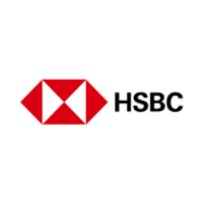Financial Results
HSBC Pre-Tax Profit Rises; Wealth, Personal Banking Increases Result Share

Figures for 2023 showed that the wealth and personal banking division held a higher share of total pre-tax profit than in 2022, highlighting how wealth management, for example, is a more important driver of results. Quarterly results, however, jolted investors and shares fell today.
HSBC today reported that
its wealth and personal banking arm accounted for $11.544 billion
in pre-tax profit for 2023, making up 38 per cent of the total
result for the bank – up from 33.1 per cent a year ago.
The wealth and personal banking arm, which includes HSBC’s
private bank, came second in terms of its share of the result
behind the commercial banking division (43.8 per cent); and ahead
of global banking and markets (28.3 per cent). There was a small
loss at the corporate centre side of the lender.
For HSBC overall, pre-tax profit in 2023 rose by $13.3 billion to
$30.3 billion, primarily reflecting revenue growth. This included
a favourable year-on-year impact of $2.5 billion stemming from
HSBC’s sale of retail banking operations in France, and a $1.6
billion provisional gain recognised on the acquisition of Silicon
Valley Bank UK Limited last year. Quarterly results,
however, showed a drop in profits. HSBC said reported
pre-tax profit fell $4.1 billion to $1.0 billion, including the
recognition of a $3 billion impairment charge in the fourth
quarter relating to its investment in BoCom, the Chinese
associate, and an aforementioned impairment stemming from its
sale of French retail banking operations. Reported revenue fell
11 per cent to $13 billion in Q4, 2023.
Full-year 2023 Revenue rose by $15.4 billion, or 30 per cent
year-on-year, to $66.1 billion, including growth in net interest
income of $5.4 billion, with rises in all of the
bank's global businesses due to the higher interest rate
environment.
Net interest margin of 1.66 per cent increased by 24 basis
points, reflecting higher interest rates.
Expected credit losses and other credit impairment charges were
$3.4 billion, down by $100 million. The net charge in 2023
primarily comprised charges related to mainland China commercial
real estate sector exposures.
Operating expenses fell by 2 per cent to $32.1 billion, mainly
because restructuring and other changes weren’t repeated after a
programme of changes in 2022. This effect more than offset higher
technology costs, inflationary pressures and an increase in
performance-related pay.
Target basis operating expenses rose by 6 per cent. This is
measured on a constant currency basis, excluding notable items
and the impact of the acquisition of SVB UK and related
investments internationally.
The bank’s Common equity tier 1 capital ratio of 14.8 per cent
rose by 0.6 percentage points, as capital generation was partly
offset by dividends and share buy-backs. HSBC said its board has
approved a fourth interim dividend of $0.31 per share, resulting
in a total for 2023 of $0.61 per share. It also intends to
commence a share buy-back of up to $2.0 billion. It expects to
complete this by its first-quarter 2024 results'
announcement.
The Hong Kong-based part of HSBC makes up the lion's share of the
overall business, accounting for 75.6 per cent of total reported
profit - $16.167 billion in 2023, up from $12.899
billion. In 2022, Ping An Insurance Group of China, aka Ping
An, reiterated its push to force HSBC into slashing costs and
quitting sub-scale non-Asia markets. In April last year, ISS, the
shareholder group, advised HSBC investors to reject
PingAn's call.
Reaction
During Hong Kong and London trading, shares in HSBC fell 6.8 per
cent as of 09:00 London time, fetching £600 pence per share.
Since the start of January, they have softned by 4.8 per
cent.
HSBC’s impairments linked to the sales of its French business and
value of BoCom made the looks look more complicated than they
would otherwise have been, Matt Britzman, equity analyst,
Hargreaves Lansdown, said in a note.
“If there was an award for simple and clean results then HSBC
would get the booby prize. There’s a lot to unpack here, with the
fourth quarter alone impacted by two major impairments: a $3bn
write-down in the value of BoCom (Chinese bank) and a $2bn
write-down from the sale of its French operation. Backing out a
lot of the mess, it looks like performance was a little worse
than expected with higher operating costs more than offsetting
slightly better impairments,” he said in a note. “Mainland China
remains a question mark. The write-down of BoCom follows a
similar pattern to what Standard Chartered did last quarter and
while loan loss charges were better than expected, the Chinese
commercial real estate sector continues to be weak.”
“The outlook is equally as messy. Returns are expected in the
mid-teens once some one-off bits are backed out, costs are
forecast to rise 5 per cent and loan loss levels are expected to
tick higher. Overall, that paints a mixed underlying picture that
looks to be a little worse than the current consensus has
built-in,” Britzman continued.
“2023 was a strong year for HSBC, but earnings momentum looks to
be coming to an end and things are set to get tougher from here.
The group has options, not least from a capital perspective with
today’s $2 billionn buyback a teaser of more to come once the
sale of its Canadian business completes. But when it comes to UK
banks, the more traditional lenders like NatWest and Lloyds look
to be better placed for upside,” he said.